Podcast 147: How DollarSprout.com Grew to Over $200,000 a Month with SEO Traffic

When you buy something through one of the links on our site, we may earn an affiliate commission.
1 to 1. 2 million pageviews a month with 80% from search engines.
$238,000 in top line revenue in a month, with a 50%-60% profit margin.
Are those the kind of numbers you would like to see in your business? Well, I’m happy to say that you are about to hear an interview with a business owner that has those exact numbers.
Today, you’ll hear from Jeff Proctor, co-founder of DollarSprout.com and BreakingTheOnePercent.com. Just to clarify, over 90% of the income comes from Dollar Sprout.
I was doing some keyword research for my blog a couple of months ago and I started to see a site I’d never heard of called Dollar Sprout. The deeper I dug, the more curious I got. This site appeared to have come out of nowhere over the past year, dominating tons of #1 rankings in Google.
As I did some more Googling, I found what the founders were up to, Jeff and his partner Ben, and reached out to make a connection.
Well, as it would turn out, Jeff was already a member of the Niche Pursuits Facebook group. How cool is that? So, I reached out and asked Jeff to come on the podcast to tell his story.
What you’re about to hear is the story of how Jeff and his partner Ben built Dollar Sprout into a six-figure-a-month business with most of its traffic coming from Google. Tons of valuable tips and lessons to be learned, so I hope you listen until the end.
During this interview, a few of the topics covered:
- How Jeff and Ben got started with Dollar Sprout.
- Keyword research and content strategies.
- What makes content better than competitors?
- The importance of updating old content. Jeff talked about their passive income article that he was updating at the time of recording. Here is the article before it was updated, here's the article now. (So, you can see everything that goes into updating old content).
- Link Building strategies they follow.
- The importance of a great design.
- Thoughts on Pinterest
- Constant improvement is the key.
- Breaking The One Percent Bloggers Facebook Group
Jeff was also nice enough to share just a few screenshots from some recent affiliate earnings and traffic. Obviously, there is more earnings than what is shown here, but this is a good sample.
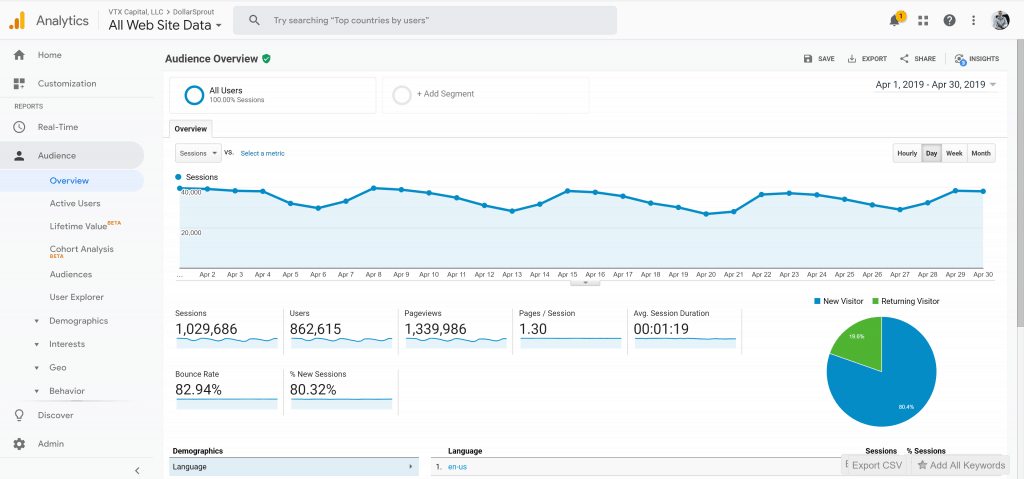
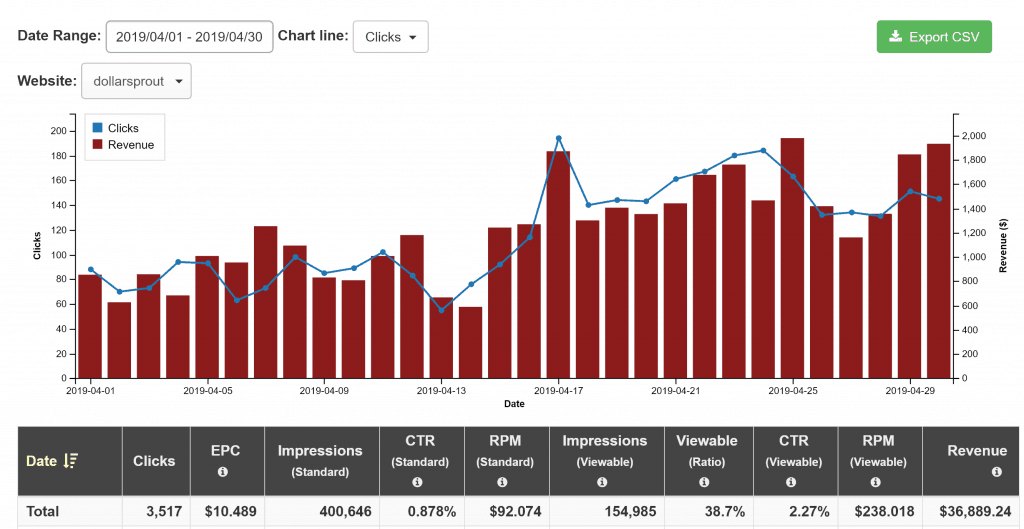

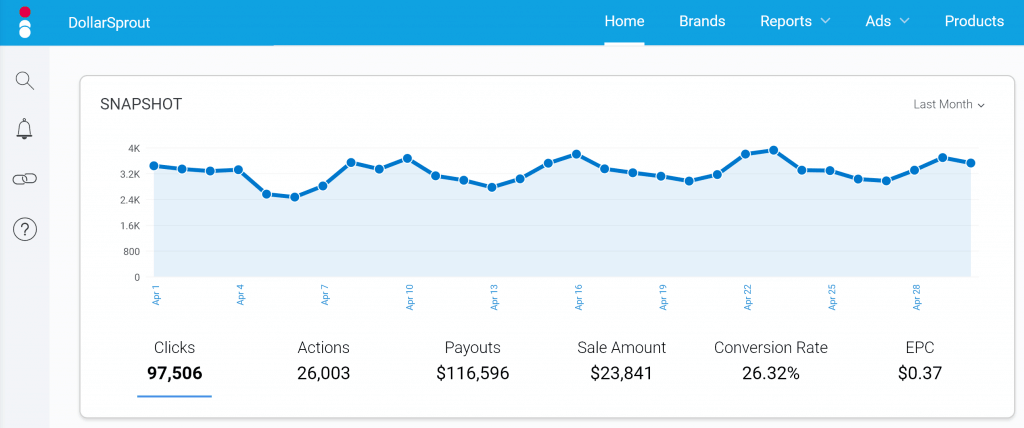
Transcript:
Hey, Jeff. Welcome to the Niche Pursuits podcast.
Jeff: Hey, Spencer. Thanks for having me.
Spencer: It’s great to connect here via audio. I was just mentioning to you here that I noticed your website a little while ago, I was just doing some keyword research on my own, and this website called Dollar Sprout kept popping up all over the place, and so I had to dig a little deeper. As I did, I saw the really cool things that you guys were doing over at Dollar Sprout; the big success, the big growth that you’ve had, so I wanted to have you on the podcast.
I want to dive into Dollar Sprout and of course your other site, Breaking the One Percent. But first, I’m interested in hearing a little bit of your background. Can you give us a brief background on sort of your business and work experience previous to building websites?
Jeff: Yeah. Without making this too long of a drawn-out story, I went to Virginia Tech for undergraduate degree. I was actually studying biochemistry with the hopes of eventually going to med school and being a doctor and doing all that. Right around when the stock market crashed in 2008, I got really interested in personal finance simply because I’d always heard, “Buy stocks low and sell high.” I heard that everything was crashing, and I was like, “Oh, this might be a good time to buy.” Not knowing anything about what was going on, why stocks were down so much or whatever. But essentially, that’s what started my interest in personal finance was basically a recession.
I finished out my degree in biochemistry at Virginia Tech and when I graduated in 2013, I realized that, “I actually don’t want to go to med school.” I didn’t have great grades for it anyway. It’s not like I could have even gotten in. I slowly realized that all I really ever read about is investing and personal finance, “Why don’t I try to get a job in that filed?” I applied to probably about 50 different places in May of 2013, in the month that I was graduating. I was totally unprepared for the real world. I got rejected from a bunch of places and finally got one interview at a local place, local wealth management firm here in Blacksburg. I got a job there; it wasn’t a great job. I was an assistant to a financial advisor making $a8 an hour when I first started out.
Spencer: Ouch.
Jeff: A four-year degree, all the student loans, and I’m making minimum wage pretty much. I worked there for a couple of years, about 2 ½ years, slowly worked my way up from $8 until by the time I left there, I was salaried at $40,000 a year which is definitely more than enough to live off of in this area. But through that work experience, really figured out that I don’t like having a boss.
Looking back, I was very fortunate to have a rough start to my professional working career because it ultimately guided me down the path of trying this whole online entrepreneurship thing out. After I worked there for about 2 ½ years, then I left there to start what would eventually become Dollar Sprout. But that’s a long story there where we wanted to start an investment subscription, research-based website, and that ended-up being a flop, as many people experience their first time trying to start a business.
Eventually, after a few years of trial and error, everything became what is Dollar Sprout today which is an online personal finance blog that’s mainly monetized through affiliate marketing. And by mainly, I mean, like 99%.
Spencer: Awesome. Very cool. You did start another website and again, I kind of threw my own little research, I can see what your old domain was. It looks like you redirected. You got the new name, Dollar Sprout at some point, and redirected everything over. What was the year that you started that first website?
Jeff: The first website was actually called vtxcapital.com. Like I said before, it’s designed to be a membership website where the idea at least is to have people pay us a monthly subscription fee to see what stocks are trading because that was what I was really into at the time. I quickly realized that creating the product and marketing it and getting sales while competing with the major players in the space like Morning Star and all these elite websites, it was just a hopeless endeavor.
After trying that for a while, then I think in October 2017, we had kind of already transitioned to like a blog and affiliate marketing-focused but then we had the problem where the domain vtxcapital.com was not at all reflective of what we had become. We bought the domain name dollarsprout.com, we bought it from a website called brandroot.com which is one of these, I guess, domain brokers of sorts where they have at least somewhat brandable domains and they give you a logo and all that. I think we paid $1600 for the Dollar Sprout domain. It really didn’t have any links to it to speak of. It was, for the most part, a clean slate but it was something that we thought was brandable and we could really build something around it that made sense for our brand.
We did that full transition. We started VTX originally in August 2015 and then October 2017 was when we fully transitioned into dollarsprout.com.
Spencer: Okay. Perfect. You mentioned we a couple of times and I know you have a partner in Dollar Sprout but why don’t you tell us why you have a partner, how that goes, what’s the responsibilities, that sort of thing.
Jeff: Yeah. There’s myself, Jeff and my business partner, Ben who’s actually my friend from college. We’re still roommates actually living in the same apartment now five plus years later. We had met in undergrad, and we always kind of had the idea that someday, we’re going to start a business together. We didn’t really know what. For a long time, on the back burner, Ben actually studied biology in school, and he is a registered nurse. He was working for a few years as nurse and actually, he still has his nursing license. He’s more of the technical background. He’s always kind of a computer nerd than me. We thought, “Okay, I’m working in this finance job. I want to use my finance and investing skills but not in a traditional environment, I want to do it on my own.” Ben has the technical know-how to get us off the ground.
That’s how it’s been, for the most part for us, as we built out. He is a lot more of the background stuff, all the technical stuff. He leads up a lot of our SEO effort which is a big source for our traffic. Now we’ve added on a few editors, we have a team of freelance writers and designers and all that. In all, including me and Ben, we probably have about 20 folks total between full-time and contract workers helping us on a month to month basis with Dollar Sprout.
Spencer: Cool. You’ve definitely grown it into something more significant. I do want to give the listeners a sense of how well your business is doing in terms of Dollar Sprout. What can you share with people that’ll help them understand the success? If you’re willing to share income numbers, people love that, traffic, that sort of that.
Jeff: Yes. I’ll start off with traffic. When we first started Dollar Sprout, we had basically no traffic because we started at kind of on the side of what was VTX Capital before. VTX was like a little bit established but we still wanted to build Dollar Sprout and see if that brand would work or whatever. It started off with essentially zero traffic to Dollar Sprout. As of now, we’re getting between 1 and 1.2 million pageviews a month, I believe to Dollar Sprout. The majority of that, I would say, 80% or so, is coming from search engines. We also include our income from Breaking the One Percent or BTOP in our total income numbers but it’s probably about maybe 7% of our total income. But last month, our topline revenue was, I believe $238,000, and our profit margin right now, we’re aiming for between 50% and 60% profit margin.
Sometimes, we’re trying to make a habit of reinvesting money back into the business, so we’ve been very fortunate to be the beneficiaries of a lot of growth in our first couple of years of doing this.
Spencer: Yeah. First of all, congrats, man. Those are huge numbers.
Jeff: Thank you. To give more context to this, for the first year that we started the business, I had left my full-time job to do entrepreneurship full-time but when I had left, we weren’t making any money at all. That was definitely a big stressor and a big mistake to make, just to blindly leap into this. Actually, for the first year, we didn’t make any money. I actually had to go back to get a full-time job after the first year of failing at this.
When you take a step back, it looks like an overnight success story even though it’s been four years. We only just crossed the six-figure monthly barrier I think it was in December of last year was our first $100,000 a month, I believe and right now it’s May 2019. We’ve been very lucky and very fortunate to be able to get where we’re at.
Spencer: Alright. There’s a lot to unpack there. A lot of people obviously, when they hear the big numbers, they want to be able to replicate that. They want to know what’s your secret sauce, what are you doing that’s working. There are obviously other people out there that have tried for a year or two years and things just don’t take off. They make $500 in a month and maybe that’s as much as they ever make. Focusing of course on Dollar Sprout, which is the big business there, can you give us a high-level strategy that you followed that is working?
Jeff: Yes. When we first started out, we wanted, like I said, to be a subscription-based model. And then after a while, that just wasn’t working. We just couldn’t figure out how to make it work. The next step for us was, we had AdSense ads on for a while and that made $2 a month or something. We need kind of heard about affiliate marketing and decided to try it out and that was our first little glimpse of success was when we first started out affiliate marketing and using Pinterest as a way to get traffic. That’s where our first breakthrough moment was, affiliate marketing and Pinterest and it happened that we discovered both at the same time.
The way that looked for us was we went from $15 a month to then we $500 a month. For us, if you look back, we had a year where just nothing worked and then all of a sudden, out of nowhere, we had about $500 a month—or whatever it was, I don’t remember exactly. But when that happened, Ben and I were like, “Okay, let’s drop everything else that we’re trying to do,” that we’re just wasting our time and spinning our wheels, “Let’s figure out how affiliate marketing works.” Because we just threw some links in an article and it got traffic on Pinterest. We didn’t know what we were doing.
We really, I would say, the biggest creditor to our success is knowing we found that works and then we got really good at that one thing. You’ll see a lot of the bigger bloggers out there will swear by selling courses and masterminds and all of that. We don’t do any of that on Dollar Sprout. It just wasn’t something that was going to work for us. Once we started doing affiliate marketing, we just got super focused on that. Then once we had some traction with Pinterest, then we started to explore SEO a little bit more and that’s when things really blew up for us.
Again, it’s a slow process, all of this stuff. Once you decide you want to learn a certain skill, it’s like, you know nothing about it. When we start started talking about SEO, we didn’t get any of the benefits for a year. Just because when we’re starting out, making sure all the lights are green and […], like you think you’re doing a good job and then it’s like, “Oh, that’s only 5% of the equation.” It’s also just a compounding effect of getting incrementally better at enough things over time to where now it’s just a lot of different channels are working out for us.
Spencer: I know that you said I think somewhere around 80% is search engine traffic. I do want to jump into SEO and try to get as many details out of you as we can here. Let’s maybe start with your content strategy. Take us through what is the content strategy from finding keywords to finished piece of content.
Jeff: Yeah. For us, the way that we have our site set-up now is we have four main content verticals, so to speak. We have make-money, anything about side hustles, different businesses you can start or whatever, that is one category. We have banking and investing and then money management, which is kind of a catch to all category.
Where we first saw the most success on our site was with articles on making money that did well on Pinterest. That’s where we then decided like, “Okay, this is how things success here. If we can leverage search as well for this content vertical, I know that can potentially be a good thing. ” We started doing keyword research and honestly, nothing about our keyword research is anything different than you had read on any SEO blog out there. You look at what your competitors are ranking for, what they’re doing well, what’s getting them traffic, and then basically just try to write something better.
For us, the way that typically looks is we’ll get the keywords and then what we do is since we frequently hire freelance writers to help us create content because actually, I’m a very slow writer so is Ben, so we really like to use freelancers that are good at what they do. What we do is we’ll take the keyword and then we’ll create essentially an outline for that writer to follow. We don’t just tell our writer, “Hey, write me an article about the best online savings accounts,” or whatever. We’ll say like, “Okay. We’ll put in 30 minutes worth of work and create an outline, come-up with a target word count, and the different keywords we want to include.” If there’s any affiliates, we’ll mention where those should go and that type of thing.
By the time a freelancer writer gets an assignment for us, we’ve done the research, we’ve created an outline and then we have an idea of where the traffic is going to be coming from this article. For us, it’s mostly SEO. But if it was more of a social media-oriented piece, we would structure it accordingly. That’s been the basis for how we’ve built out our content strategy and then from there it’s just a volume game, just getting more content. The more content you have, the more opportunities you have to rank well. That’s really all it is.
Spencer: Okay. You look at competitors and essentially, you’re just trying to create a better piece of content. In terms of better, does that just mean longer? How do you define that?
Jeff: I think length is definitely a factor, and this is actually something that Ben and I have talked about quite a bit over the past few months, is that it seems like the MO for most people that are trying to rank on page one is like, “Hey, just write something longer than the longest one on page one.” I think for a while that’s been working for a lot of people including us, but I anticipate there’s going to be a day where Google decides like, “Okay. It’s not just about the length of your content. No one really wants to read a 9000-word article on whatever. They just want to get an answer to their question.”
I think that’s more of just a personal prediction or whatever. We don’t try to blindly write the longest piece of content there is on the topic, but we do say, “On page one, the longest article…” We’ll basically try to write something longer than at least 7 out of the 10 articles on page one. We’re not always gunning for the longest length, but we do try to answer the question most thoroughly, internal link to appropriate resource, external link to appropriate resource.
Again, this is a work in progress. One of our big projects right now is going back to our old content and updating it to bring it up to our current standards. While I look at some of our older stuff, even still it’s ranking on page one, it’s like I look at it and I cringe because like, “Ugh, this needs to be better.” We can serve the reader so much better than what we’re doing now. It’s always a continual process.
I know everyone hates when someone goes on a podcast and says, “It’s all about user experience.” But the more that we’ve grown and tried to make our site better, it really does come back to the user experience. Does your page load fast? Is your content written out in a format that makes sense for the reader? Are you actually answering their question? Or you’re just spamming them with affiliate links or whatever? We’ve made every mistake out there but we’ve had over optimized posts, over monetized post. We’ve had stuff jumbled up. It really is just trial and error to an extent.
Spencer: That makes a lot of sense. You do mention that you’re mostly using freelance writers now, do you mind sharing how much you’re paying them on average?
Jeff: I started off with the mindset of, “Try to get the best deal you can on a writer.” I think there’s a time and a place for that for when you’re first getting started out but then I realized, “We’re spending a lot of time editing this stuff that I’m paying 5 cents a word for. Is it really worth paying so little?” Now, I would say that most of our writers are paid between 20 cents and 35 cents a word depending on skill level and experience.
In my niche, in personal finance niche, that’s definitely a higher price than other niches because it does require some subject matter expertise. We’re really trying to compete with some of the biggest players in the space so we’re recruiting top-level writers that have been writing for a bunch of other publications. That’s something where we hadn’t started off doing it that way; we started off on Upwork like everybody else does, finding someone what will write for 5 cents a word or whatever, and we slowly built that to where now we’re investing more upfront in writers and a little bit less time editing ideally.
Spencer: How much content do you have on your site now roughly?
Jeff: I believe, we have around 230 articles on the site now. We have roughly 100 unpublished drafts that we are working on getting out.
Spencer: Wow.
Jeff: Actually, one of our big projects this week is figuring out since most of our content is evergreen content, which is great for an SEO site, nothing becomes irrelevant but now we really need to focus on keeping the quality high on the stuff that we’ve already put out because I’ve gone back through and updating internal links and making our content more complete.
When we have created all of this content, we’re obviously not ranking for every single article we write but the reason that anything gets put on our content calendar is with the goal of ranking in the top five of Google eventually for that search term. We have 230 articles live on our site now and maybe 40 of them get most of our traffic. We have almost 200 articles that are just out there, they’re SEO optimized, I mean, they’re good but they’re not great. We need to go back and actually get the most out of the stuff we already have. That’s been a big focus for us for the past few months, just trying to figure out how the heck we’re going to maintain this piece that we’ve created.
Spencer: I completely understand. Going back and updating content that you’re referring to and adding internal links, just maintaining content. It’s not something you think about when you initially start a site, you just think about writing new pieces of content. That’s more exciting. Getting the new content out there but I’ve seen some big gains myself going back and updating content. It can increase traffic. It is important so I’m just vouching for what you’re doing I guess already.
Jeff: It’s a painful process. To give you an example, this morning, I’ve been working on going back through—we have an article on passive income—and it’s just a list of 15 passive income ideas. The list is fine. It ranks on page one but it’s not the top of page one on Google. It’s a pretty heavy searched term so I’m going back through it. I’m looking at this article and just the way I have it laid out just doesn’t make any sense. I just have a list of just 15 ideas, but I haven’t broken them down between the classic way, make passive income is either invest a bunch of time or invest a bunch of money. But that concept isn’t clearly laid out in this article that we have on our site. It needs to have that laid out and it just doesn’t. Stuff like that, structural, foundational issues with content even if it’s already ranking well, it’s not going to stay ranking as well if all of our competitors know how to explain passive income, but our article just doesn’t do a good of a job. It’s like, even if you have rankings now, they’re not guaranteed to stay there.
Spencer: Absolutely. Let’s talk about links a little bit. I had pulled your site up in AFREFs, you guys have a lot of great links, what’s you link building strategy?
Jeff: I would say in a nutshell, it’s consistency. We’ve never once sent out an automated blast to hundreds of people. Everything that we’ve done is really manual. We do a mix of guest posting; we have one of our assistants leveraging our current connections to try to get us guest posting opportunities. We try to crank out three or four a moth, some months are better than others. And then we also really focus on building domain-level links to our site through HARO, Help A Reporter Out, I’m sure you’ve heard of that. We try to stay pretty consistent with that.
Again, it’s one of those things where when you are trying to balance everything else about running a business, sometimes it’s just hard to take 30 minutes out of your day to like email some reporter that probably has a 10% chance of using your answer but we found that if we just stay consistent and try to do at least a few of those a week, pick up a link here or there, that definitely helps.
Also, another thing that has really helped our link building is actually—and it’s kind of weird how it’s worked out, I didn’t anticipate this happening—but for our entrepreneurship and blogging website, breakingtheonepercent.com, that’s how we’ve really made a lot of connections in the community through talking about our experience and building Dollar Sprout. A lot of people, we’ve been very fortunate to have just been willing to link to us just because they see the faces behind the brand as we write about our journey on BTOP. That’s sort of been really the basis for everything that we do for our link building.
It does help that we have multiple folks helping us. I’m doing it, Ben is doing it, our editors will chip in every now and again, we’ve got folks helpings us out. There’s definitely a power in numbers.
Spencer: You’ve got people helping you do outreach to get guest post, for example.
Jeff: Yeah. We do have one virtual assistant that does help us with just emailing folks to get guest posts. Then once we do, once the person does land a guest post, then we write it or we have one of our freelancers write it. When we turn in a guest post, you’re not going to find a whole lot of guest post from us that are of low quality, much I think probably helps our success rate that if we’re going to write for someone, we’re going to do a good job. I don’t want us to give someone a 600-word post with some over optimized ink or text and just call it a day. We crank out a couple thousand-word article and try to make it good.
Spencer: Any other tips for link building? You’re doing some guest post, Help A Reporter Out, and obviously, you’ve got connections with other entrepreneurs that either are just because they read your blog or they link to you or maybe you guys talk about it or like, “Yeah, I’ll drop you a link, “ or whatever. Anything else that you think that has either helped you attract links or that is specifically building efforts on your own?
Jeff: I will say one thing that has helped us in a way that I didn’t anticipate is actually our site design. I’m not saying we have the best design in the world and actually we’re working on a redesign right now, but I will say that people to link to something that looks good. I think a lot of bloggers that are throwing a lot of ads on their sites, for instance, Dollar Sprout has no display ads. We have none. If you’re going to give a link to someone, people are more willing to give a link to someone that they know, their site has a clean user experience, and looks really good. I think that reducing as many barriers as possible to someone not wanting to link to you is really important.
We had our site custom built back when we first launched it. Obviously, not everybody can do that or is in a position to invest a few thousand dollars into a site design, but if you just keep the big picture in mind, realize that there’s a lot of intangible things that go towards link building that it’s not about blasting out 5000 emails that all of us get everyday asking for a link, that we just delete. I’m very proud to say we’ve never sent out an automated blast.
Spencer: Yeah, that’s awesome.
Jeff: That’s something I hope to keep going.
Spencer: That’s encouraging.
Jeff: And then I think just realizing that it takes years for all this stuff to compound and build up. You just got to be consistent.
Spencer: This wasn’t a question I specifically had but just thinking about, I mean, the fact that it’s you and Ben that started this, I think a lot of people listening are thinking, “Man, how did Jeff do all of this all on his own?” When they think of their own shoes, “I’m one person trying to build a blog.” You’ve been able to double your efforts with you and Ben, been able to work on it full time, right?
Jeff: Yeah. I think it’s not only that but—this is something that I hate to acknowledge—it’s not just that there’s two of us; it’s that there’s two of us and we live together, and this is all we do. It’s not fair for me to say like, if you’re married and have kids and a mortgage and a job, that like, “You can do it too.” I’ve really tried to tone back on that rhetoric as I talk about the potential that the blogging provides. I’m slowly realizing that our situation is not normal. Ben and I each have a significant other. This Summer, we’re both moving into our significant other’s for Summer, so I anticipate that there’s going to be some slow down happening just because we’re not with each other every waking minute.
Spencer: You guys are putting in some long hours every day.
Jeff: Yeah. We’re basically trying out to finish out strong before our real lives start happening. It’s definitely something that I can’t not acknowledge that’s been a factor.
Spencer: It makes a lot of sense. How important would you say Pinterest is to the overall site and the success of it?
Jeff: Right now, if I had to give a score of 1-10 in terms of overall importance of success, I would say probably like a 3 or a 4. Obviously, most of our traffic comes from Google but then an important part of SEO—this is all of course assumptions, like no one knows for sure—but it’s showing Google that you’re doing more than just trying to appease Google. If you’re active on multiple social channels, for us, our two channels that we use are Pinterest and Facebook. Facebook will post stuff organically but that’s more of just to do it and be present, but we also spend a little bit of money on Facebook ads just to drive traffic to our content.
Between Facebook ads and Pinterest, those are important for just the holistic picture of our business. But yeah, I would say that for a new blogger just starting out, I think that the route that we took still makes the most sense which is, I think for now, at least they know Pinterest, it’s not what it used to be. It’s not as easy with traffic as it used to be, for sure. I think when you look at it compared to Facebook, Twitter, Instagram, or whatever, I still think it’s your best bet for getting free traffic relatively quickly. All this is, of course, depending on your niche to some extent. But I think if you can build a foundation on Pinterest and then slowly start to pivot towards SEO for as more of like a long-term play, I still think that’s the best approach.
Spencer: Okay. I think that’s a fair assessment there. I do want to talk a little bit about monetization strategy. You mentioned of course that affiliate marketing is what’s working really well, you don’t have display ads anymore after your early days of Google AdSense, anything else besides just affiliate marketing and you’re mentioning the products naturally throughout your articles with content links.
Jeff: Our niche plays a big role in this part of our strategy. Since we’re personal finance niche, we’re not really selling a lot of products per se. We do virtually zero Amazon affiliate marketing. We make like $20 a month from Amazon. What we do primarily is we focus a lot on lead generation for businesses, link banks or investment broker or whatever, or even like a […] economy type jobs like Uber, Lyft, Instacart. They are basically paying for customer acquisition. That’s what we’ve really focused on is trying to find a low barrier to entry offer that an affiliate is willing to pay a couple of bucks for it and then we just throw volume at that.
For instance, let’s say Instacart is willing to pay $10 for every new person that signs up to be a new shopper with them. That is a pretty low barrier to entry. If someone likes to sign-up, okay, they sign-up, it’s free. It’s no loss for them and they have this free opportunity to make money and we’ll get a few bucks. Most of our commissions are quite low. Usually between $2 and $50 per lead or conversion or sign-up or whatever. But most, I would say, the vast majority of what we do is just lead generation for other companies. Very few readers of ours actually pull out their wallet to buy something from our site, if that makes sense.
Spencer: That does make a lot of sense. I’ve seen survey through Swagbox or Instacart or Uber.
Jeff: Yeah, that’s where we’ve really focused a lot of our attention.
Spencer: Yeah. That’s awesome. Is there anything else? I mean, there’s obviously a ton that you’re doing but just sort of a final question here, is there anything else that’s working really well for your site that you’d like to let the listeners know about?
Jeff: That’s a good question. It is hard to pinpoint a single thing. I think that more of just the underlying habit that Ben and I have developed of constantly auditing what’s working, what is not working. Then for the stuff that’s not working, decide if it’s a volume problem, like you’re not doing enough of the thing that’s not working yet or you’re doing it wrong or you just suck at it.
The problem with us our first year was we were trying to do this subscription-based model and it wasn’t working. It wasn’t a matter of if we just work harder, it’ll get better. We couldn’t have been working any harder, we were doing it wrong, we sucked at it. We found something that worked even if it’s a totally different strategy and affiliate marketing and social media type stuff, that worked. We then ditched what wasn’t working and pivoted to what was.
I think constantly applying that mindset to your business, it’s what’s gotten us to this point so far. We’re always making mistakes and doing stuff that end up being a waste of money but we’re pretty good about ditching the stuff that’s not working and then just keep reinvesting towards what is working.
Spencer: I think that’s great advice, being willing to change and focus on what is showing the results and focus your energy there. I think that makes a lot of sense. If people want to get in touch with you, where’s the best place to go? Should they just go to, well, you tell me. Dollar Sprout or Breaking the One Percent?
Jeff: Yes. If you are interested in online business and blogging and entrepreneurship and all that, I definitely recommend checking out our website breakingtheonepercent. com. we actually have a Facebook group associated with that page where Ben and I are fairly active in there. We have a couple of thousand folks in there that are getting blogging tips and sharing insights and what not. And then, if you want to see what Ben and I spend 90%, 95% of our time on, check out dollarsprout.com. That’s where we have all of our personal finance content and that’s where we’re really trying to build this out to be something hopefully, one day, pretty big. That’s pretty much it.
Spencer: Excellent. Thank you, Jeff so much for coming on the Niche Pursuits podcast. I love seeing the success that you’re having with dollarsprout.com. thanks for sharing all the tips and really appreciate it.
Jeff: Thank you so much, Spencer. I enjoyed it.
Spencer: Alright. Thanks a lot!
Want to learn step-by-step how I built my Niche Site Empire up to a full-time income?
Yes! I Love to Learn
Learn How I Built My Niche Site Empire to a Full-time Income
- How to Pick the Right Keywords at the START, and avoid the losers
- How to Scale and Outsource 90% of the Work, Allowing Your Empire to GROW Without You
- How to Build a Site That Gets REAL TRAFFIC FROM GOOGLE (every. single. day.)
- Subscribe to the Niche Pursuits Newsletter delivered with value 3X per week
My top recommendations

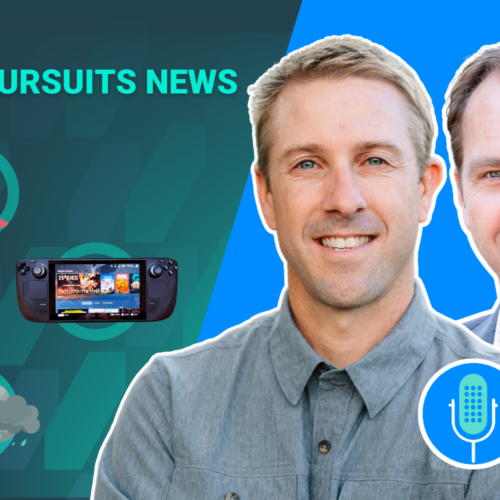

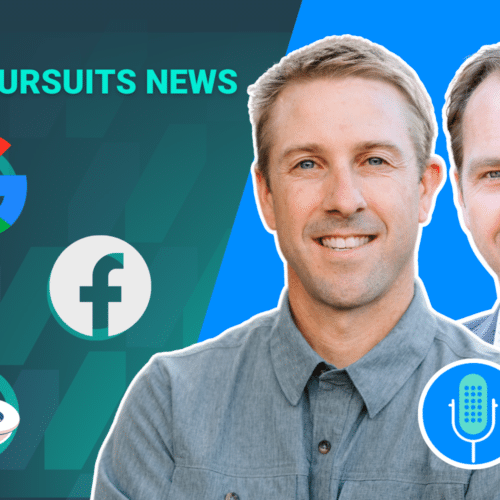







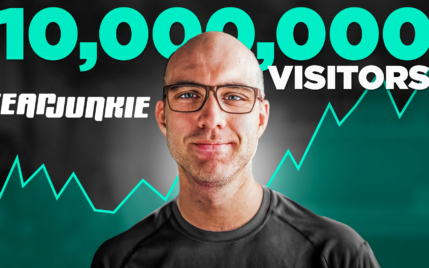


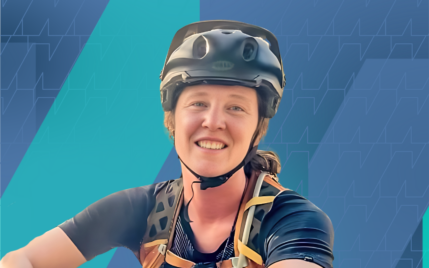


11 Comments
Conversation
This is a really great read – thanks Jeff and Spencer.
I do think that the bulk of the meaningful work (for SEO) went into creating powerful links. Jeff, you did say that “our assistants leveraging our current connections to try to get us guest posting opportunities.”
And also “then we also really focus on building domain-level links to our site through HARO, Help A Reporter Out,”
I have noticed that many of the links mention the brand name which seems quite impressive considering you only started last year. You’ve got some powerful connections 🙂
It’s just a proof that if you have the right connections and the right budget you can can create powerful links to rank your content. And sometimes (or many times) you need the right budget to create the right connections. But this is something that we all like to keep as a secret….
James
Hey James,
Glad you enjoyed the podcast!
I see what you are getting at here, but there is no way I would risk things at this point to take shortcuts like that. The results you are seeing are from a consistent team effort over a prolonged period of time, and they are just now starting to snowball. Do HAROs everyday, write guest posts every week, help people out in Facebook groups every day, respond to journalist queries every day, and eventually the same outcome may happen for you too 🙂
Thank you, Spencer and Jeff for this insightful sharing. Very motivating
Glad you enjoyed it! 🙂
This is quite interesting. But was looking like as if they took off immediately they started though.
Congratulations to their new revenue level now
Hi Spencer,
I got a lot of idea from your article, Thanks for sharing this. I’m gonna apply techniques on my site.
Best Regards,
Glad you enjoyed it, Alex! Thank you for listening!
I like your content review for dollarsprout
Thank you, Earli!
Thank you!
Thank you Amar!